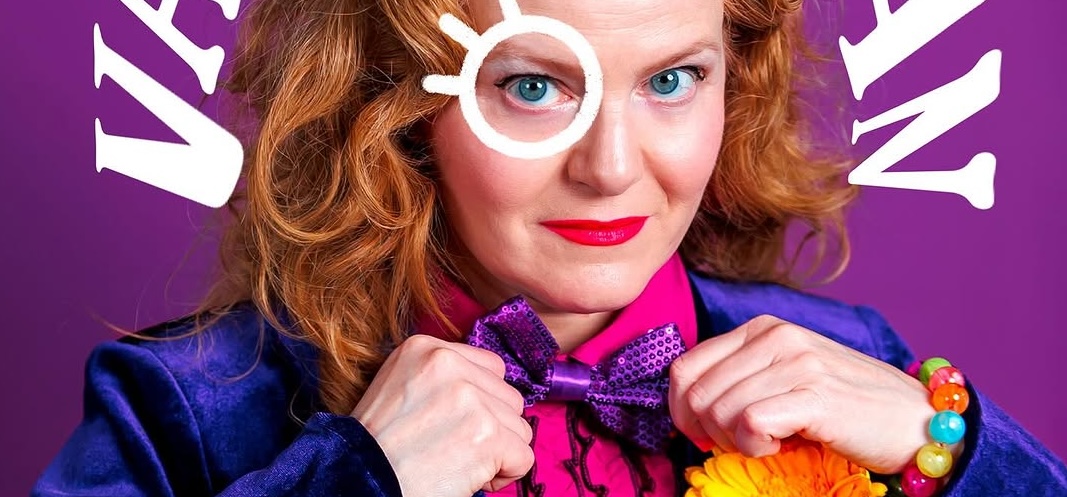The vaudevillian of the title is Christine Ferrera – a Chicago-based comedian whose show combines stand-up, storytelling, and a little dash of mimicry. Ferrera certainly carries off the music-hall look, with a retro-yet-ritzy glittery jacket and the most statement-making leggings to be spotted anywhere on the Fringe. But while her material looks back to her 1980’s childhood and beyond, her themes – including student debt, body dysmorphia and the angst that comes from ageing – feel more than adapted to the modern age.
Though this is a solo show, Ferrera isn’t alone on the stage. She shares it with a custard pie – which sits portentously in the foreground for the whole of her performance – and a stunning hand-made “television”, which displays painted scenes from the history of comedy that Ferrera can scroll through using a mechanical wheel. It’s beautifully-constructed, utterly charming and genuinely distinctive; that rare thing I’ve never seen before, despite all my years at the Fringe.
At times Ferrera ducks behind the TV to emerge in the persona of a bygone comedy legend, as well as sharing stories from her own varied past. Unfortunately though, many of the references are too specifically American to land properly with an audience on this side of the pond. In a few cases, that’s easily fixed – a moment’s research would be enough to switch Reagan for Thatcher – but the two countries have different comedy heritage too, and some of the impressions were of characters who are much less familiar to us than Ferrera seems to expect. The concept can still fundamentally work over here, but it needs a bit more context and explanation.
And that hand-cranked TV is less prominent than you’d expect such a novel gimmick to be. Once the handle’s turning, Ferrera just trundles straight through to the end of the reel; if the content was dispensed in smaller measured doses, it could become a show-defining treat, something we look forward to returning to. Similarly, while I’m delighted to confirm that Chekhov’s Custard Pie does indeed go splat before the hour is up, it feels like a slightly awkward afterthought which could pay off more if it was telegraphed earlier.
Thinking about it afterwards, I realise the show is structured round the chronological evolution of comedy – from the vaudeville era to the “digital comedian” of the present day – but that really wasn’t clear to me when I was in the room. Overall, while Ferrera is an engaging personality and has some funny material to share, we need clearer signposting of the path it’s taking and a stronger link to the “vaudevillian” tag. But the olde-worlde YouTube machine is a visual highlight worth savouring, and I did enjoy Ferrera’s presence and style. There’s nothing here to be shy about.


Comments